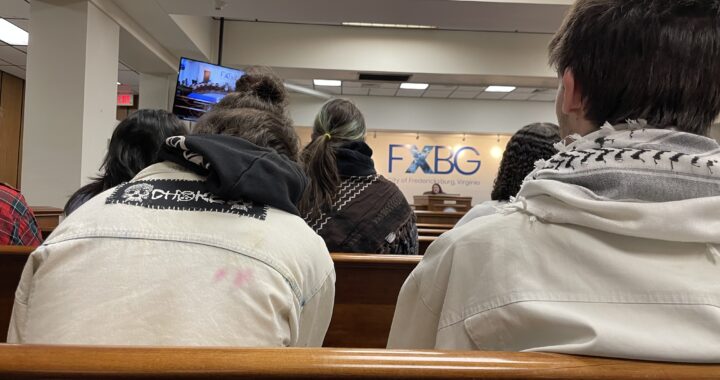Professor Ponders Peasants in Spain
3 min readBY JENCY WILLIAMS
Reading 18th century documents can get to your eyes after a while. UMW history professor Dr. Allyson Poska can verify this. She’s currently in Spain on a year-long leave of absence from the university, poring over centuries-old material for her research on the lives of Spanish peasant women.
The fact that she received a fully-funded fellowship to pay for her time in Seville—and, later, in Buenos Aires, Argentina–more than makes up for the occasional set of blurry eyes, however.
And Poska’s certainly not complaining.
“They gave me $60,000 to do what I love most,” she says. “Research and write a book–and live in two of the best cities of the world.”
It all started in Fall 2007 when Poska applied for a grant from the American Council of Learned Societies to pursue academic fieldwork in history. The Council only distributes 65 of these grants for all fields of humanities.
“My odds were not good,” she says.
Yet, in Spring 2007, the Council not only named Poska as a recipient of one of the grants, they awarded her a rare International and Area Studies fellowship—one of 10 given out last year to humanities faculty in the U.S.
Poska, a member of the UMW faculty since 1992, primarily focuses on women’s history and Spanish and Latin American history.
She says it’s only natural that she was drawn to the history of women. “Understanding how gender norms influence everyday experience is a critical part of understanding the world we live in,” says Poska, who recently completed work on a textbook on women in history, which is currently in use in a number of colleges and universities.
A firm understanding of gender history and modern expectations of gender, Poska says, is vital for both women and men.
A number of Poska’s classes revolve around 17th and 18th century peasant women from Spain—the subjects of much of her research, including her current project. Poska says that learning details about
peasant women’s personal lifestyles and moral issues can provide invaluable insight into our modern society operates.
Poska is the author of three books, and has plans for a fourth, about Spanish migration to Argentina, with the research she conducts during her fellowship.
Every day at 9 in the morning she arrives at the Archivo General de Indias, which is the main archive of the Spanish overseas empire. There, she pores over as many documents as possible before her eyes are completely shot.
On a typical day she lasts for roughly five hours, or until 2 p.m. This may sound grueling, but Poska’s fellowship hasn’t been all work and no play.
After lunch around 3 p.m., she relaxes her eyes during that wonderfully refreshing, and enviously famous Spanish siesta. Then, close to 6 p.m., she leisurely strolls around Seville, visiting the sites, running errands, and experiencing the people and the culture. At 8:30 she concludes her day with a shockingly early dinner by the nocturnal Spanish standards.
While the latter half of Poska’s day starts to sound cushy, she insists it’s the Spanish way. She recalls that a Spanish colleague once told her, “Americans live to work, while Spaniards work to live.”
In Spring 2008, Poska will leave Seville to conduct further research in Buenos Aires, where she plans to maintain a similar schedule: reading her way through the capital city’s archives in the mornings, immersing herself in Argentina, its people, and its culture the rest of her time.











